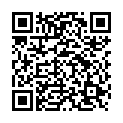|
|
|
| Module code: AGW23.10 |
|
|
4V+2U (6 hours per week) |
|
8 |
| Semester: 3 |
| Mandatory course: yes |
Language of instruction:
German |
Assessment:
Examination achievement
[updated 30.10.2023]
|
AGW23.10 (P311-0278, P311-0279) Applied Health Sciences, Bachelor, ASPO 01.10.2023
, semester 3, mandatory course
|
90 class hours (= 67.5 clock hours) over a 15-week period.
The total student study time is 240 hours (equivalent to 8 ECTS credits).
There are therefore 172.5 hours available for class preparation and follow-up work and exam preparation.
|
Recommended prerequisites (modules):
AGW23.6
AGW23.9
[updated 04.12.2025]
|
Recommended as prerequisite for:
AGW23.14 Care Management and Evidence-Based Practice
AGW23.16
[updated 04.12.2025]
|
Module coordinator:
Prof. Dr. Michael Bergmann |
Lecturer:
Prof. Dr. Michael Bergmann
Prof. Dr. Vasiliki Kolovou
[updated 04.12.2025]
|
Learning outcomes:
Module 23.10.1: Qualitative Methods
Learning outcomes:
After successfully completing this module, students will:
be able to describe the interpretative paradigm as a research guiding thought model of qualitative social and health research
be familiar with the basic principles of qualitative social and health research.
be able to describe how to develop and work on a scientific problem.
be able to describe the steps required to conduct a qualitative-empirical study, use the appropriate data collection methods, and evaluate and interpret the results with regard to the research question.
be familiar with the criteria for the critical evaluation of qualitative research work.
be able to explain the main differences between various qualitative research methods.
be able to derive application-oriented qualitative research questions based on problems or questions from professional practice.
be able to justify the selection of appropriate procedures and methods within the qualitative research process necessary for answering a specific research question.
be able to apply survey and evaluation methods from qualitative health and social research.
be able to develop an interview guide and will have honed their methodological interviewing skills.
be able to critically evaluate a qualitative research paper using appropriate criteria.
be able to justify the relevance and usefulness of qualitative research in their professional fields of activity to others.
be able to present, justify and argue health science issues, approaches and research results to experts and laypersons.
show openness and tolerance towards other views and perspectives.
be willing to scientifically address application-oriented research questions from practice and to take research results into account in future professional activities
23.10.2. Quantitative Methods - Lecture
Learning outcomes:
After successfully completing this module, students will:
be able to describe the logic of the quantitative research process.
be able to explain the difference between experimental studies and observational studies.
be able to name the advantages and disadvantages of different selection and survey methods in quantitative research.
be able to explain the basic principles of generating hypotheses and operationalization.
be able to explain the significance of the p-value.
be able to recognize quantitative methods in publications.
be able to critically evaluate quantitative methods presented in scientific publications.
be able to derive correct interpretations based on the results of quantitative research.
be able to apply their methodological knowledge of quantitative research to specific research questions.
be able to apply the methods of inductive statistics to simple exercise examples and select the appropriate statistical test.
be able to critically reflect on aspects of research ethics in the context of the quantitative research process.
23.10.3.: Quantitative methods - Tutorial
Learning outcomes:
After successfully completing this module, students will:
be able to derive a quantitative research problem.
be able to apply a statistical software program exemplarily on the basis of a specific question and sample data sets.
be able to independently develop simple program-based solutions in the software.
be able to apply quantitative research methods and analytical techniques.
be able to present and explain research findings.
be able to present and discuss partial steps in their own research work
be able to give each other feedback on their research work
[updated 30.10.2023]
|
Module content:
Module 23.10.1: Qualitative Methods
History and rationale of qualitative social and health research
Methodology and standards of qualitative social and health research
Questions and fields of application of qualitative social and health research
Development of a qualitative research question
Possibilities of field work
Survey methods for obtaining qualitative data (e.g. by means of interviews, observation, group discussion)
Data transcription
Evaluation and interpretation of qualitative data (e.g. by means of qualitative content analysis, grounded theory, documentary method)
Use of software for computer-aided data and text analysis
Documentation and presentation of qualitative research results
Mixed-methods approaches in health sciences
Quality criteria in qualitative research
Research ethics in social and health research
Critical examination of published qualitative study papers/results
23.10.2.: Quantitative Methods - Lecture
Module content:
1. Research process/ethics
2. Study designs
3. Selection procedures
4. Methods of data collection
5. Generating statistical hypotheses, statistical tests
23.10.3.: Quantitative methods - Tutorial
Module content:
1. Introduction to program-based statistical analysis software.
2. Data management
3. Data analysis
4. Reporting
[updated 30.10.2023]
|
Teaching methods/Media:
Blended learning
[updated 30.10.2023]
|
Recommended or required reading:
Will be announced at the beginning of the module.
[updated 30.10.2023]
|

